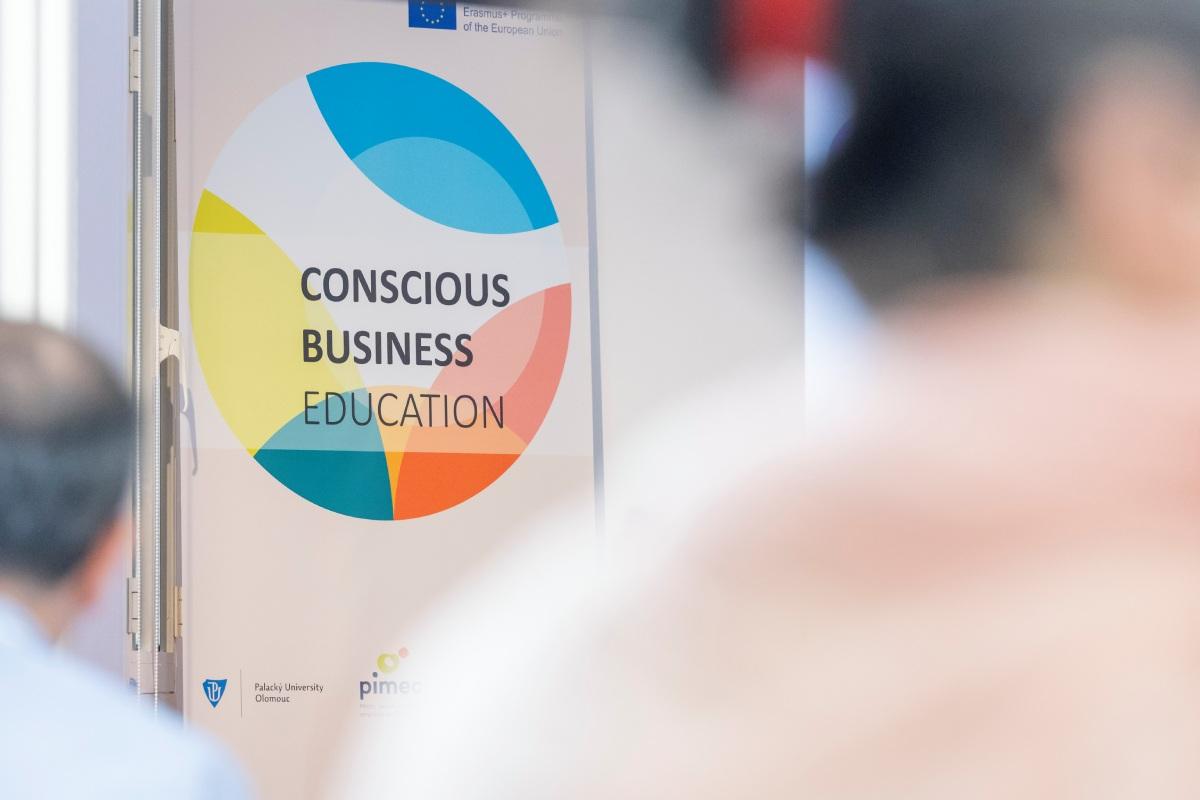Experts debate about conscious business education at UPF-BSM
22 Agosto - 2023
“In a VUCA (Volatile, Uncertain, Complex and Ambiguous) context, the purpose of conscious business education is “to educate current and next generation business leaders and entrepreneurs in Europe to conduct business consciously”, said Marcos Eguiguren, Associate Provost for Strategic Projects at UPF Barcelona School of Management, during his welcome remarks at the recent Annual In-Person Conference on Business Education, that was held during two days at the school’s facilities, and where a series of experts on conscious business education debated and shared thoughts about the matter.
The general vision of conscious business education, added Eguiguren, relies on three points:
- Every business student in Europe must be taught conscious business practices as part of their academic education
- Business faculties at universities and business schools should integrate conscious leadership and management methodologies and mindset in their educational programs, from undergraduate to executive education
- Academic research mustbe available to evolve conscious business practices to work effectively
In the first overview session, Prof. Dorianne Cotter-Lockard from Saybrook University asked herself what does it mean to be conscious. “To be conscious means to be aware of our inner and outer worlds, to be fully awake”, she explained. “It includes self-reflection on one’s own beliefs, emotions, motives, values, goals and impact. And consciousness also includes the capacity for abstraction which allows humans to manage complexity”.
After which, Cotter-Lockard proposed a definition of conscious business: an approach to business that takes into consideration the direct and indirect impacts of business practices on all stakeholders, including employees, customers, the environment, and society at large.
“It also involves cultivating a culture of mindfulness and awareness among employees, promoting collaboration and empathy, and encouraging personal and professional growth and development”, she added. “Ultimately, conscious business aims to create a more equitable, resilient and flourishing world by using the power and resources of business to contribute to the greater good”.
The Four Tenets of Conscious Business are stakeholder integration, higher purpose, conscious leadership and conscious culture and management, she concluded.And these tenets are interconnected and mutually reinforcing; foundational, not tactical or strategical; and represent the essential elements of an integrated business philosophy that must be understood holistically to be effectively manifested.
The humanistic leadership approach
Next followed a keynote session by Michael Pirson, Professor of Humanistic Management at Fordham University, which was entitled “Educating business students to do business more consciously: The humanistic leadership approach”.
Prof. Pirson aroused many questions: are we near human extinction?Are we organized for survival?Do we need a better leadership? A new operating system? Or a new kernel (that is, the interface between hardware and software)?
“We have to change mindsets”, he answered, “because problems cannot be solved with the same mindset that created them.But we have the change the operating system too”. Pirson posed a dichotomy between an economistic model (with responsibility as maximization) versus ahumanistic model (with responsibility as staying or getting in the safe and just operating zone), or if we wish, an economistic story (the “homo economicus”) versusa humanistic story (the “homo sapiens”). And there is no doubt that a “humanistic perspective allows a better leadership”, he concluded.
